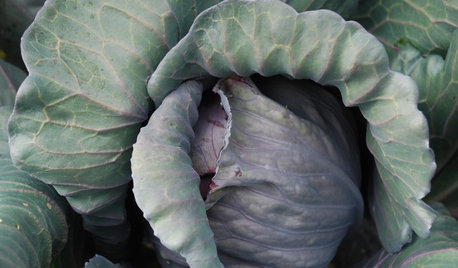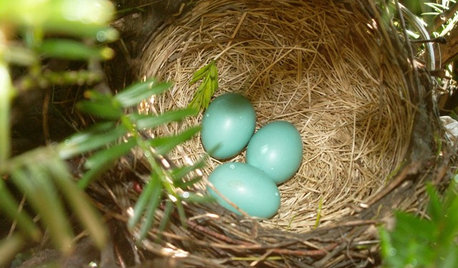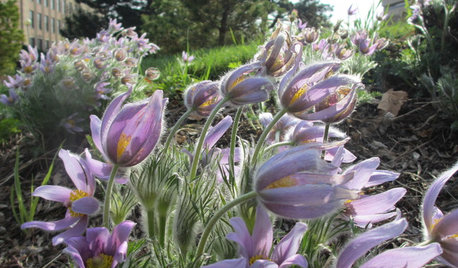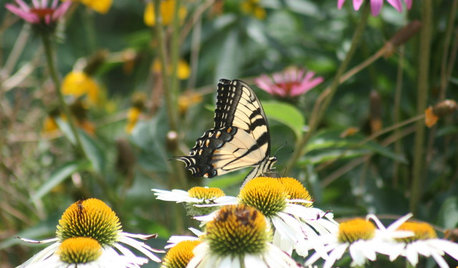Cabbage worms - How to control
forensicmom
13 years ago
Related Stories

COOL-SEASON CROPSCool-Season Vegetables: How to Grow Cabbage
Give soups and stews an unbeatably fresh flavor with this ever-popular fall garden favorite
Full Story
GARDENING GUIDESHouzz TV: Make a Worm Bin for Rich Soil and Happy Plants
A worm-powered compost bin that can fit under a sink turns food scraps into a powerful amendment for your garden. Here’s how to make one
Full Story
COOL-SEASON CROPSCool-Season Vegetables: How to Grow Brussels Sprouts
If you love 'em (you know who you are), fall and spring are the right times for planting these veggies in your edible garden
Full Story0

GARDENING GUIDES11 Favorite Edibles for Your Cool-Season Garden
Plant crunchy carrots, crisp radishes, tender peas and other vegetables for fall and spring harvests
Full Story
GARDENING FOR BIRDSWhat to Know About Birds Nesting in Your Yard
Learn how to observe, record data and help ornithologists with NestWatch’s citizen science project understand bird trends
Full Story
UPHOLSTERYSlipcover Magic: Casual, Washable and Fresh for the Season
Reinvent your sofas, chairs and ottomans with surprisingly chic and versatile slipcovers
Full Story
GARDENING GUIDESGet on a Composting Kick (Hello, Free Fertilizer!)
Quit shelling out for pricey substitutes that aren’t even as good. Here’s how to give your soil the best while lightening your trash load
Full Story
GARDENING GUIDESOrganic Matters: Thwart Insect Pests With Trap Crops
Add a few sacrificial plants to your garden to lure insects away from the harvest
Full Story
GARDENING GUIDES6 Plants That Beat Butterfly Bush for the Wildlife Draw
It's invasive, a nonnative and a poor insect magnet. Check out these better alternatives to butterfly bush in the garden
Full Story
GARDENING GUIDESLessons in the Rewards of Selfless Gardening
Let go of gardening for your own vision and watch the garden’s own true vision come forth
Full Story






kandm
forpityssake
Related Professionals
Norton Shores Landscape Architects & Landscape Designers · Chelmsford Landscape Contractors · Fort Atkinson Landscape Contractors · Fort Hunt Landscape Contractors · Fort Mill Landscape Contractors · Holland Landscape Contractors · Kerman Landscape Contractors · New Baltimore Landscape Contractors · North Ridgeville Landscape Contractors · Point Pleasant Landscape Contractors · Saint Paul Landscape Contractors · San Bruno Landscape Contractors · Wentzville Landscape Contractors · Camp Springs Landscape Contractors · Ferguson Landscape Contractorsdigdirt2
ldj1002
veggiefaery
ausbirch
bluebirdie
veggiefaery
heather38
veggiefaery
heather38
ausbirch
planatus
P POD
cincy_garden
forpityssake
tdscpa
spiced_ham
emmers_m
jollyrd